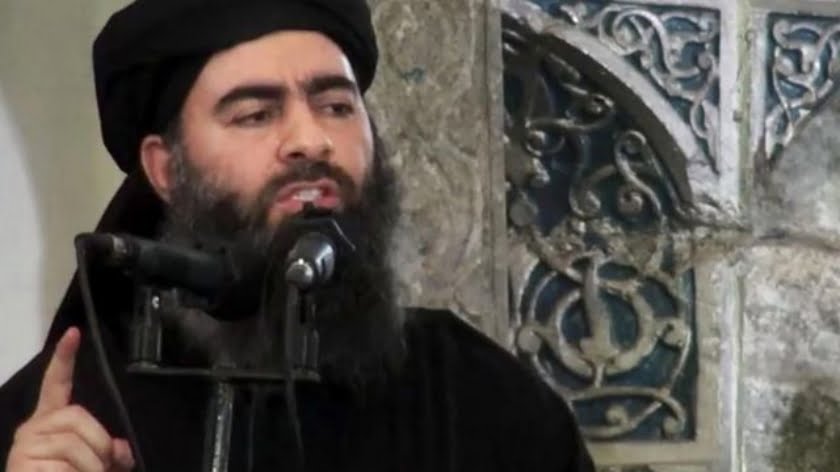Closer to War Against China
What is the Trump Administration’s policy as regards China? The People’s Republic is the United States’ largest trade partner, but there is a curious ambivalence in Washington as to how this vastly important country should be handled. Although the recent visit to Beijing by Secretary of State Rex Tillerson was undoubtedly successful, there have been signals that Mr Trump and others in Washington, including his Chief Strategist and Senior Counsellor, Steve Brannon, and Defence Secretary James Mattis, do not approve of dialogue with China.
On March 19 Secretary Tillerson told President Xi Jinping that «President Trump places a very high value on the communications that have already occurred between yourself and President Trump, most particularly the very lengthy telephone conversation, where there were very good exchanges to improve the understanding of China’s view of the relationship with the United States, and President Trump’s view, as well. And he looks forward to enhancing that understanding, and the opportunity for a visit in the future. We know that, through further dialogue, we will achieve a greater understanding that will lead to a strengthening of the ties between China and the United States, and set the tone for our future relationship of cooperation».
This positive and most welcome approach was markedly at variance with a Trump pronouncement of two days previously when he tweeted that «China has done little to help!» in resolving the North Korea crisis, which was consistent with his tweet in January that «China has been taking out massive amounts of money & wealth from the U.S. in totally one-sided trade, but won’t help with North Korea. Nice!»
The reference to one-sided trade was interesting, because as Forbes noted on March 21, China is the United States’ third-largest export market and «top market for the Number One US export, aircraft and parts».
Just after being elected in December Mr Trump set the tone for his continuing criticism of China by demanding (by twitter, of course) «Did China ask us if it was OK to devalue their currency (making it hard for our companies to compete), heavily tax our products going into their country (the U.S. doesn’t tax them) or to build a massive military complex in the middle of the South China Sea? I don’t think so!»
There is no agreement or regulation specifying that China or any other country is required to seek the approval of the United States before devaluing its currency. Certainly, the Charter of the International Monetary Fund advises that members have an «obligation to collaborate with the Fund to promote a stable system of exchange rates and to avoid manipulating exchange rates or the international monetary system to prevent effective balance of payments adjustment or to gain an unfair competitive advantage over other members». But there’s nothing about having to ask Washington for permission to do anything.
Mr Trump’s reference to the South China Sea was also intriguing, because it is doubtful that the Chinese government would ask the US for approval to build anything in that region or anywhere else in the world. Why should it do so? And what is the purpose of Mr Trump’s persistent censure of China?
There are some indicators in his 2015 book Great Again: How To Fix Our Crippled America in which he wrote «There are people who wish I wouldn’t refer to China as our enemy. But that’s exactly what they are [emphasis added]». The stage is being set for the war predicted by Steve Bannon, now the President’s chief strategist, who declared in March 2016 that «We’re going to war in the South China Sea in five to 10 years. There’s no doubt about that. They’re taking their sandbars and making basically stationary aircraft carriers and putting missiles on those. They come here to the United States in front of our face — and you understand how important face is — and say it’s an ancient territorial sea».
One indisputable fact is that the South China Sea is not an ancient territorial sea of the United States whose western shores are 12,000 kilometres (7,000 miles) from China’s coastline.
The extreme views of such as Bannon appear mild compared with the malevolence of Peter Navarro, Trump’s Director of the National Trade Council. Last July in an interview with the Guardian newspaper Navarro «railed against how China’s ‘brutal, authoritarian communist government’ had decimated the US economy. He painted China as a ravenous bully and said he agreed with Trump’s claim that Beijing was guilty of ‘raping our country’ over trade». This is what can be expected from a man whose book, Crouching Tiger, is described by the Financial Times as «a call to arms against a menacing rival superpower that is invariably portrayed as acting out of the worst of motives».
US admirals agree that confrontation with China is desirable, and last December Admiral Harry Harris, chief of the US Pacific Command, announced that «We will not allow a shared domain to be closed down unilaterally no matter how many bases are built on artificial features in the South China Sea. We will cooperate when we can but we will be ready to confront when we must». Then the US deployed Carrier Strike Group 1, led by the nuclear-powered (and no doubt nuclear-armed) supercarrier USS Carl Vinson, to the South China Sea in mid-February. According to its commander, Rear Admiral James Kilby, «The training completed over the past few weeks has really brought the team together and improved our effectiveness and readiness as a strike group,» and assured the world that «We are looking forward to demonstrating those capabilities». Against whom?
Then Defence Secretary James Mattis (a strange person who once declared with a laugh that «it’s fun to shoot some people»), said on March 22 that China seeks «veto power over the economic, diplomatic, and security decisions of nations on their periphery». No it doesn’t, because it wants trade and dialogue with these nations.
President Xi made it clear to Secretary Tillerson that China prefers negotiation and mutual prosperity to military threats and trade sanctions. His statement that «You have made a lot of active efforts to achieve a smooth transition in our relationship under the new era and I also appreciate your comment that the China-US relationship can only be defined by cooperation and friendship,» was indicative of a desire for harmony, in spite of all the insults levelled at China by Trump and his associates.
It seems that Tillerson’s comment about cooperation and friendship was delivered from a platform of rationality and pragmatism that is shared by neither President Trump nor those he has appointed to be the most influential figures in the Executive Branch. They are about to begin a trade war and seem determined on hot war. The entire world will suffer immeasurable harm if there is armed conflict, which will begin if the US Battle Groups behave as the warriors in Washington seem to want them to do. China wants dialogue but will react to aggression and is unlikely to back down. It is time there was deeper reflection in the war-rooms of Washington.
By Brian Cloughley
Source: Strategic Culture







